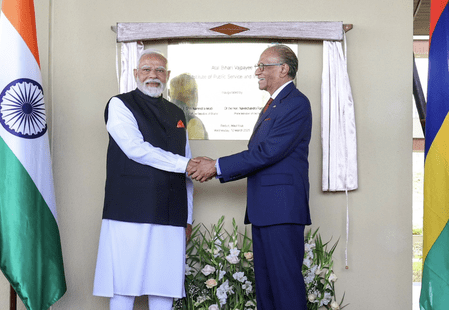
Mauritius PM Navinchandra Ramgoolam to visit Varanasi, meet PM Modi in New Delhi
Mauritius Prime Minister Navinchandra Ramgoolam will undertake a week-long state visit to India from September 9 to 16, marking his first overseas bilateral trip in his current term. The visit underscores the close and historic partnership between India and Mauritius, rooted in shared heritage, culture, and strong diplomatic ties.
According to officials, Ramgoolam will arrive in Varanasi on September 10. On September 11, he will hold a bilateral meeting with Prime Minister Narendra Modi in New Delhi to review cooperation in areas including trade, culture, and strategic partnerships. Later that evening, he will attend the Ganga Aarti in Varanasi. The following day, Ramgoolam is scheduled to offer prayers at the Kashi Vishwanath Temple before proceeding to Ayodhya.
The Ministry of External Affairs (MEA) confirmed that the visit also includes stops in Mumbai and Tirupati. In Mumbai, Ramgoolam will participate in a major business event to promote investment and strengthen economic engagement.
This is Ramgoolam’s first India visit since 2014, when he attended Prime Minister Modi’s swearing-in ceremony. The Mauritius leader recently extended warm wishes to India on its Independence Day, praising India’s values of freedom, democracy, and unity, while reaffirming the nations’ enduring cultural and historical bonds.
Earlier this year, Prime Minister Modi visited Mauritius to participate in the island nation’s 57th National Day celebrations. During that visit, both leaders held wide-ranging discussions with Mauritian President Dharam Gokhool, further cementing the special relationship between the two countries.
India and Mauritius have maintained longstanding relations since 1948, characterized by mutual trust, cultural closeness, and continuous high-level exchanges. Ramgoolam’s 2025 visit is expected to further strengthen bilateral cooperation in strategic, cultural, and economic spheres.